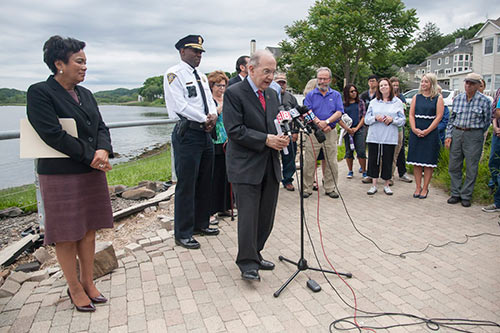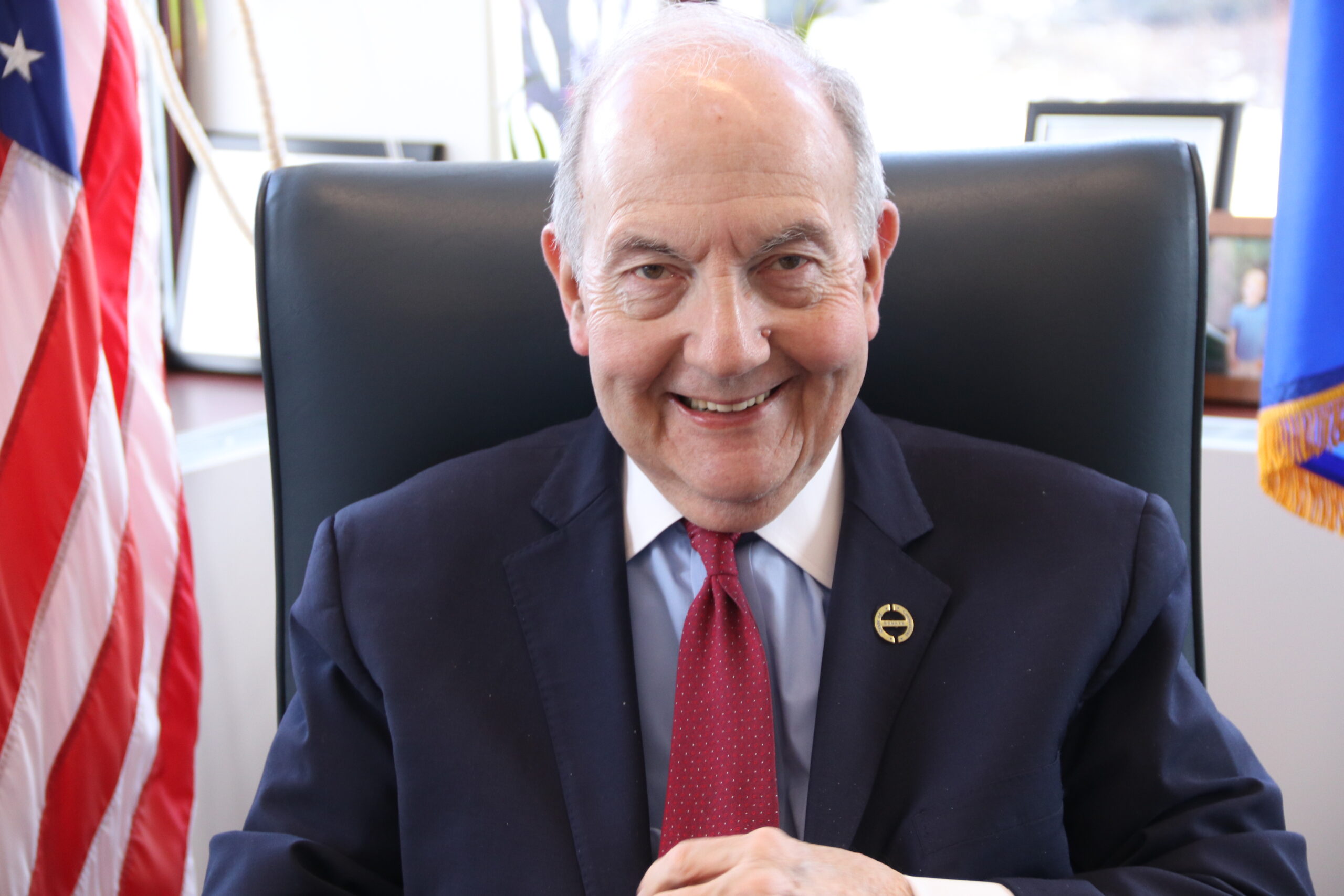Senate President Looney, Rep. Paolillo and Concerned Neighbors Join Mayor Harp, Chief Campbell and Alder Santana to Announce One-Year Duck Hunting Ban Along a Portion of the Quinnipiac River

NEW HAVEN, CT—Responding to the public safety concerns of area residents over the sound of gunshots, Senate President Martin M. Looney (D-New Haven) and Rep. Al Paolillo, Jr.(D-New Haven) and working with Chief Anthony Campbell of the New Haven Police Department and the Connecticut Department of Energy and Environmental Protection (DEEP), state and local elected officials announced today that the DEEP has temporarily closed the area along the Quinnipiac River in New Haven to the hunting of waterfowl.
The one-year hunting ban extends from the tip of Fargeorge Preserve (Granis Island) at the mouth of Hemingway Creek, across the river to Lombard Street, north to the I-91 Bridge. This location is contiguous to an area already closed to hunting.
“Hearing gunshots is an unsettling experience—especially hearing them in a densely populated city neighborhood,” Senator Looney said. “For neighborhood residents, this is a significant public safety concern and a potentially unnecessary drain on police resources. I am pleased to have worked with Rep. Paolillo, residents and Chief Campbell to bring these concerns to the attention of the DEEP commissioner.”
“The moratorium recognizes that residents have valid public safety concerns about hunting taking place in an urban setting. It is an appropriate measure that will immediately restore a sense of safety to those living nearby while giving DEEP time to study the issue further and hopefully reach a resolution,” Representative Paolillo said.
The year-long closure follows an official request by New Haven Police Chief Anthony Campbell for the DEEP to review public safety concerns related to waterfowl hunting in the area, including police responses to reports of gunshots in the vicinity that divert public safety resources and can cause confusion. The DEEP has requested hunting-related incidents received by the New Haven Police Department over the past three years. After the DEEP receives those reports it will conduct a thorough review of the matter and make a recommendation to the Office of the Commissioner for further action.
“As a law enforcement professional with over twenty years of experience, I can tell you that having part of a community that is fearful that they may be struck by gunfire and another part of a community say that it will not call law enforcement when it hears gunfire is not a healthy and a precursor for something bad to happen,” Chief Campbell said. “I believe that this moratorium will allow residents along the Quinnipiac River to reestablish a sense of security and it will allow the New Haven Police Department to effectively make contact with residents and talk with them about shots being fired in their neighborhoods and what the proper response protocols should be.”
“The term, ‘shots fired’ has an entirely different meaning in an urban setting, so we’re thankful in New Haven for this DEEP hunting moratorium, and grateful to Senator Looney, Rep. Paolillo, and the rest of the city’s legislative delegation for its advocacy in this regard,” Mayor Toni N. Harp said. “Other parts of Connecticut are blessed with miles and miles of marshland to coincide with wide open spaces—we’d prefer duck hunters to pursue this activity where public safety won’t factor in to the extent it does here.”
“Following a request by New Haven Police Chief Campbell, I have issued a temporary closure of a limited area along the Quinnipiac River to hunting,” said DEEP Commissioner Klee in an earlier release. “I have made this decision in the interest of public safety, while also recognizing the importance of hunting in our state. Once DEEP staff complete their review, they will make a recommendation to the Office of the Commissioner for further action regarding this area of the river.”
Share this page:
